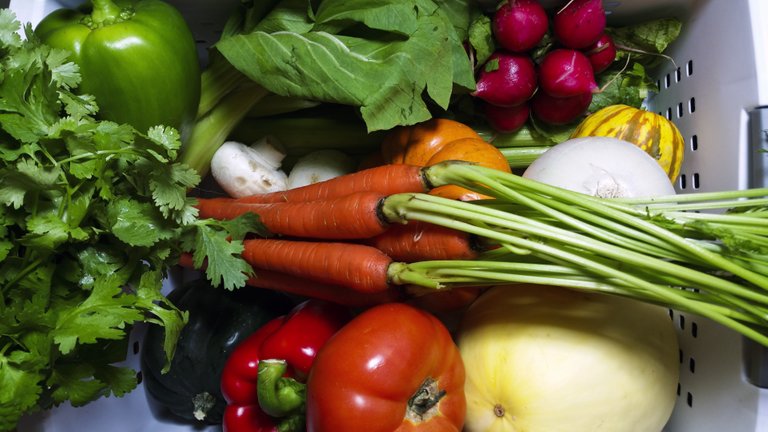**What are the benefits to human health vegetable **

vegetables is one of the indispensable food reasonable diet, the following health benefits:
(1) to provide a variety of vitamins: the body needs water -soluble vitamins such as vitamin C is mainly provided by fresh vegetables, If the long-term intake of fresh vegetables is insufficient, it is easy to suffer from vitamin C deficiency, which is scurvy. Vegetables in a B Hu radish hormone in the body can convert into vitamin A, vitamin A deficiency occurs if many organs can be affected, such as eye drops of night vision ( night blindness disease), skin keratosis hyperplasia, rough and immunity The function is reduced, etc. In addition, vegetables can also provide nutrients such as folic acid and vitamin K.
(2) Providing mineral elements: Vegetables are important food sources of mineral elements such as potassium, calcium and magnesium. Potassium is a very important mineral element to maintain the homeostasis of the body. A sufficient amount of potassium in the diet can improve the body's stress ability. Therefore, eating more vegetables can help improve cell metabolism and improve physical fitness.
(3) Dietary fiber in vegetables can improve intestinal function: cellulose in vegetables can effectively promote intestinal and gastric peristalsis, and is beneficial to the proliferation of intestinal probiotics, such as promoting defecation and reducing the residence time of harmful substances in the intestine. To improve intestinal function.
(4) vegetables phytochemicals plays an important role in promoting healthy: vegetables especially dark vegetables contain large amounts of plant chemicals such as polyphenols, phytoestrogens, sulfides, active and more sugar , tomato red pigment, chlorophyll, alkaloids Etc., it is very helpful to promote human health and prevent certain chronic diseases such as cancer, cardiovascular and cerebrovascular diseases, diabetes, osteoporosis and other diseases.
Tips: Summary of the nutritional characteristics of vegetables
(1) potassium, calcium, iron content is rich.
(2) More water-soluble vitamins.
(3) In addition to roots, stems, and fresh beans, carbohydrate content is below 10%, and as little as 1%.
(4) Except for the high protein content of fresh bean pods, they are generally l% to 3%, and the quality is not high.
(5) The fat content is very small, mostly less than 0.5%, so vegetables only supply a small amount of heat.
(6) The moisture content of vegetables is more than 80%, and the enzymes are also rich, so fresh vegetables are are not easy to preserve.
(7) Vegetables are rich in cellulose
please upvote me
thanks for the article! I am trying to live the healthy life, so this information is super interesting for me! Please, vote for my last post- it's not about veggies, but about healthy eating as well. thanj you!
ok dear